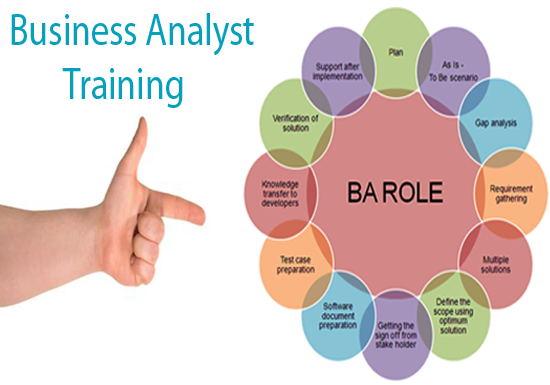Business Analysis Training Enhance Skills for Successful Projects

Business Analysis Training: Enhance Skills for Successful Projects. Boost your career with our business analysis training! Enhance your skills & lead successful projects effortlessly. Join us today for hands-on learning!
The Significance of Business Analysis Training
Business analysis training plays a vital role in ensuring successful project outcomes. By equipping professionals with the ability to identify needs & propose solutions, organizations can realize their goals efficiently. The value of such training can be observed across various sectors, including IT, finance, healthcare, & manufacturing. With the increasing demand for effective project management, investing in business analysis training becomes essential.
Through structured training, individuals gain practical knowledge & techniques that facilitate clearer communication, improved decision-making, & effective stakeholder engagement. Trained business analysts can streamline processes, identify inefficiencies, & offer data-driven insights that align with organizational objectives. Consequently, team members benefit from enhanced collaboration & a shared vision of success.
On top of that, as projects grow in scale & complexity, the need for skilled professionals becomes ever more pronounced. Business analysis training equips participants with necessary methodologies & tools, such as SWOT analysis, BPMN, & process mapping, enabling them to thrive in challenging environments.
Essential Skills Gained from Business Analysis Training
Business analysis training encompasses a range of skills that are crucial for driving successful projects. Here are some of the key skills participants can expect to develop:
Analytical Thinking: Analyzing data to identify trends & patterns is a fundamental skill covered in training sessions.
Problem Solving: Participants learn techniques to dissect problems & develop effective solutions.
Communication: Clear & concise communication helps in translating technical details into understandable concepts for stakeholders.
Stakeholder Management: Understanding stakeholders' needs & expectations is critical for building strong relationships.
Documentation Skills: Creating & maintaining accurate documentation is vital for referring back to project requirements.
These skills not only enhance individual performance but also contribute to the overall success of projects. Having trained professionals in business analysis can lead to more innovative approaches & improved efficiency within teams. The ability to view situations from multiple perspectives enables business analysts to offer comprehensive solutions that benefit both the organization & its stakeholders.
Methods & Frameworks in Business Analysis
Various methods & frameworks are integral to business analysis training, providing participants with structured approaches to tackle complex issues. Among the most popular methodologies are:
Method/Framework Description
SWOT Analysis A framework that identifies strengths, weaknesses, opportunities, & threats related to a project or business.
BPMN (Business Process Model & Notation) A standard for business process modeling that provides a graphical representation of processes.
Agile Methodology An iterative approach that emphasizes flexibility & customer satisfaction through fast delivery of functional software.
Waterfall Model A linear approach where each phase must be completed before the next begins, suitable for well-defined projects.
Understanding & applying these frameworks allows business analysts to manage projects more effectively. By connecting with stakeholders, business analysts can ensure that their projects align with end goals, addressing challenges as they arise. Frameworks encourage a standardized approach, minimizing confusion & enhancing collaboration among team members.
Real-World Examples of Successful Business Analysis
To illustrate the impact of business analysis training, consider the following case studies from various industries:
IT Sector: A software development company used agile methodologies learned through business analysis training to improve product delivery speed by 30%. Through effective stakeholder collaboration & requirements gathering, the company was able to meet customer expectations more consistently.
Healthcare: A hospital implemented business process mapping techniques to streamline patient intake processes, resulting in a 20% reduction in wait times. Training helped staff identify inefficiencies & propose actionable changes.
Finance: A financial institution employed SWOT analysis to explore market opportunities, leading to a successful product launch that increased revenue by 15%.
These examples demonstrate how proper training in business analysis provides a foundation to tackle real-world challenges strategically & efficiently. Organizations that invest in developing their workforce gain a competitive edge through enhanced operational performance & improved customer satisfaction.
"Business analysis training is not just an option; it's a necessity for professionals who wish to achieve project success." - Prof. Trevor Lakin
Choosing the Right Business Analysis Training Program
When considering business analysis training options, several key factors should guide your selection:
Accreditation: Verify whether the program is recognized & accredited by professional organizations.
Curriculum Offered: Review the course content to ensure it addresses the skills & methodologies relevant to your goals.
Instructor Expertise: Investigate the qualifications & real-world experience of the instructors.
Format & Flexibility: Consider whether the program is delivered online, in-person, or through a hybrid model that best fits your learning style.
And another thing, look at testimonials & reviews from previous participants to gauge their experiences. Selecting a reputable program can significantly enhance your business analysis capabilities & prepare you for the challenges ahead. Tailoring your learning to your professional needs ensures you gain the most from your investment in personal development.
The Future of Business Analysis
As industries evolve, the role of business analysis becomes more prominent. Organizations increasingly rely on data-driven decision-making & agility to respond to market changes. Upcoming trends suggest that business analysts will need to integrate advanced technologies like artificial intelligence & machine learning into their practices. Training programs that embrace these innovations will ensure participants stay relevant in this dynamic environment.
And don't forget, as remote work continues to reshape traditional business structures, the ability to adapt to varied working conditions will be crucial. Training that emphasizes collaboration tools & virtual communication techniques will prepare analysts for successful teamwork, irrespective of geographical barriers. The future holds exciting prospects, & those ready to take on these challenges will be equipped to lead the way in successful projects.
Frequently Asked Questions
What is business analysis training, & who should attend?
Business analysis training equips professionals with structured techniques to identify business needs & devise solutions. It is ideal for project managers, product owners, & team members involved in stakeholder engagement & solution implementation.
How long does business analysis training typically last?
The duration of business analysis training varies but generally ranges from a few days for workshops to several weeks for in-depth certification courses. Online courses may offer flexible schedules that allow participants to learn at their own pace.
Are there certification options available after training?
Yes, many training programs provide certification upon completion. Recognized credentials such as Certified Business Analysis Professional (CBAP) or PMI Professional in Business Analysis (PMI-PBA) can enhance your professional profile & career opportunities.
Is business analysis training worth the investment?
Investing in business analysis training provides numerous benefits, including improved job performance, better project outcomes, & increased earning potential. Companies that support training initiatives often see enhanced productivity & employee satisfaction.
Business Analysis Training
Business analysis training is crucial in developing skilled professionals who drive project success. By sharpening essential skills, exploring relevant frameworks, & learning from real-world examples, training attendees can significantly enhance their effectiveness. With the demand for business analysts continuing to rise, pursuing training equips professionals with the tools necessary for tackling future challenges. As I reflect on my personal journey with business analysis training, I've witnessed firsthand its transformative impact on my career & the incredible results it generates within organizations.







